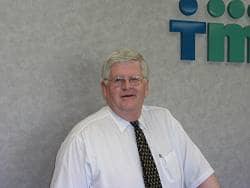By Dave Harrington, PhD, and Camryn Harrington
One of my pastimes while now semi-retired is putting together a history sheet of major accomplishments in healthcare technology. The accomplishments and resulting changes in healthcare delivery in the past 30 years far exceeds the preceding 2,000 years, and these changes keep everyone safe and healthy.
We have technology, like the stethoscope, that has been around for a few hundred years, while other items have just been cleared for use on humans here in the United States. In many cases, we, in the U.S., lag behind other countries when it comes to technology and drugs in use.
Hopefully, at some point, while technological and pharmaceutical innovations continue to emerge, everyone will have access to the cutting-edge devices, procedures, and medicines available, so more people can live longer and healthier without going bankrupt.
Looking back to the ‘60s and early ‘70s, what we taught each other and learned on medical devices seems simple and antiquated now. For the vast majority of the devices in use today, one cannot troubleshoot to the component level if there is a problem. Instead, a specialist is often called in to replace an entire assembly to correct the issue. We have learned that touching components when looking for high heat is no longer a troubleshooting method, nor is smell, but spilled coffee is a problem that may be correctable with a little water.
Remember a “Harrington Law”: Any flat surface will have a drink placed on it at some point by the users, and the liquid will spill into the device. So, as leaders, what do we teach those coming into the field?
Educating the Next Generation?
To get a feel for what the younger generation knows, I asked my grandson Camryn for his thoughts. [Editor’s note: He is recognized as a co-author of this Soapbox.] He recently graduated from a technical high school, specializing in engineering with a minor in gaming. While his mother and father and his aunts and uncles are all involved in healthcare, he has not expressed any interest in the field yet. In going over what a biomed, or HTM person does, he asked questions to which there were not always set answers.
As we talked, it became clear that the traditional engineering class did not cover our field and what we do. His curriculum—including interaction skills and team actions—was designed with a gamer in mind, rather than for a typical technology student .
Healthcare is a tough field to pursue, likely due to its ever-changing nature and wide array of positions. Though some may be drawn to its many opportunities for success, many others, including myself, view it as a daunting field—of which I don’t particularly care to be a part. With a background in engineering, I have an idea of what many specialties do, having covered a range of topics from electrical, to architecture, to bioengineering. Yet, biomed was never covered.
While teachers had a rough interest in the field, none felt the need to supplement their curriculum with anything pertaining to it. I believe this is due to the difficulty and complications that come with the position. Healthcare is constantly changing; having more developments in 30 years than 2,000 can make someone’s job a nightmare—and that someone is in biomed.
A formal biomed education is difficult to implement because the people doing it are essentially teaching themselves as they go. Plus, anyone who is teaching it is probably focusing on out-of-date topics, in my opinion. As a result, this difficulty around teaching is going to hurt the number of people looking to enter the field. A large number of people who went into the biomed profession probably weren’t planning on it at age 18.
Looking around me, there is just an endless sea of career paths in healthcare—be it a nurse, doctor, software developer, or hardware developer. The actual field is vast and constantly expanding, and it’s difficult to keep up with, if not impossible. I believe these are the reasons for a lack of new people coming to the biomed profession.
From my conversation with my grandson, it is clear, at least to me, that we need a new approach to bring talented people into our field and to take care of the technology as we age out. Hopefully, he will look over future articles that we write, and he’ll contribute his own opinions when he doesn’t agree with Gramps.
Dear reader, I urge you to communicate with everyone to get our needs in front of those who can help us do our jobs.
Dave Harrington, PhD, is a healthcare consultant in Medway, Mass. For more information, contact chief editor Keri Forsythe-Stephens at [email protected].





